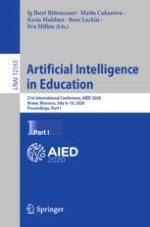2020 | OriginalPaper | Buchkapitel
To Tailor or Not to Tailor Gamification? An Analysis of the Impact of Tailored Game Elements on Learners’ Behaviours and Motivation
verfasst von : Stuart Hallifax, Elise Lavoué, Audrey Serna
Erschienen in: Artificial Intelligence in Education
Aktivieren Sie unsere intelligente Suche, um passende Fachinhalte oder Patente zu finden.
Wählen Sie Textabschnitte aus um mit Künstlicher Intelligenz passenden Patente zu finden. powered by
Markieren Sie Textabschnitte, um KI-gestützt weitere passende Inhalte zu finden. powered by
